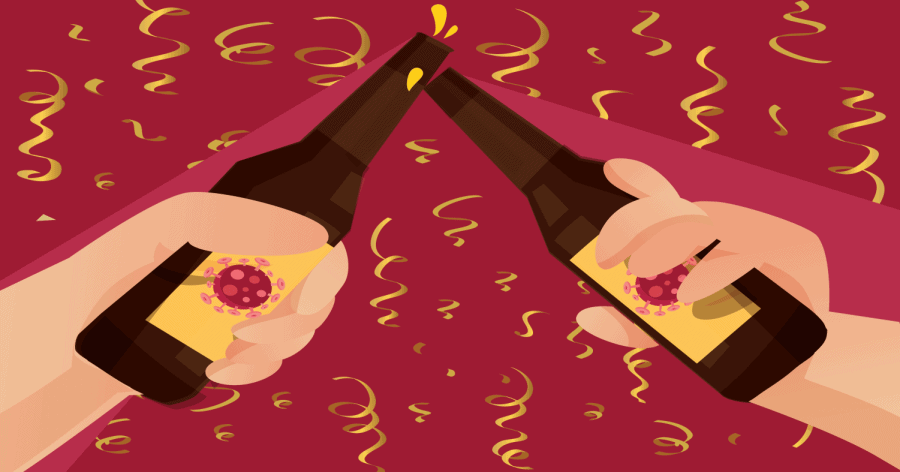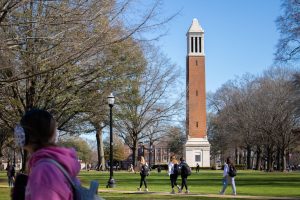How UA’s party culture has convinced some students to stay home
October 18, 2020
Some students at The University of Alabama did not return to campus this semester out of concerns related to the University’s party school culture in light of the COVID-19 pandemic.
According to the Princeton Review, The University of Alabama is the top party school in the United States. COVID-19 cases at the University were high during the first few weeks of the semester, and students speculated about how long it would take before everyone would be sent home. The largest spike in COVID-19 cases came in the third week of the semester, with 846 students testing positive.
While deciding whether or not to stay home for the semester, some students weighed the risks associated with attending a big university during a pandemic. They wondered whether their fellow students would behave responsibly in Tuscaloosa.
Two students, Keri Westerfield, a sophomore majoring in creative media, and Cameron McCall, a senior majoring in biology, said their peers may have varying opinions about what it means to stay safe during a pandemic and may not adhere to the rules as strictly as others.
Westerfield said the party culture at the University did influence her decision to stay home because the partying crowd would likely disagree with her on safety measures.
“It just seemed a lot less problematic and a lot safer and healthier for me to stay home,” Westerfield said.
She said students at the University have different ideas of what counts as being safe and was worried about returning to campus because of this.
“Different people have different ideas of what it mean[s] to be safe in a pandemic,” Westerfield said. She was especially “worried about living on campus in community spaces with a lot of people.”
McCall is also taking classes from home. She explained that she would be especially at risk if she were to contract COVID-19, so staying home was the best option.
“I knew that unless rules were strictly enforced, a lot of people wouldn’t be following them,” McCall said. “A university should put the health and safety of its students first.”
Westerfield felt that steps like limiting the capacity at Bryant-Denny Stadium to 20% weren’t enough.
“I’m glad they’re doing reduced attendance because…I know how fun it is at football to have large crowds, but I don’t think that’s necessary right now,” she said.
McCall expressed concerns over large gatherings and said she believed Alabama should “absolutely not” be having in-person attendance at games.
“I don’t see how you can have a masked gathering of people without an increased risk of COVID transmission,” McCall said. “Because it’s football season, people are going to be partying afterwards and probably being a bit more relaxed…about COVID than they otherwise would be…Having a home game and football is kind of sending a message that [COVID-19] is not that big of a deal.
Michael Watts, a freshman majoring in political science, had a much different experience. Watts actually started the semester at the University before going home for a few weeks in September. He said he was not as influenced by party culture as Westerfield and McCall. His main problem was having to spend so much time away from others.
Watts said that because of COVID-19, he felt like he was “in a prison cell” in his dorm and did not have the opportunity to make friends.
“UA put a lot of [responsibility] into the students’ hands…and rules won’t be followed,” he said. “Other students were responsible for our high numbers and were impacting me indirectly…even though I had been following guidelines.”










